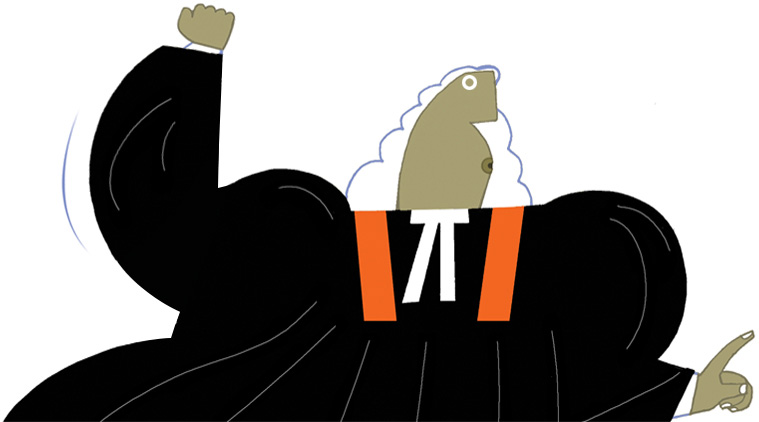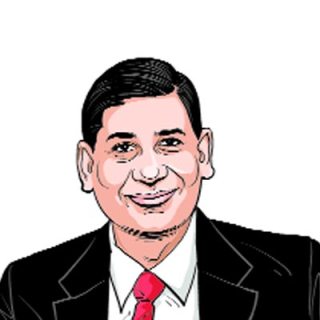Lessons in bigotry
The Meghalaya high court judge’s judgment was legally flawed and historically misleading. It violates the provisions of the citizenship law and makes a case for India as a country of, and for, Hindus.

The Supreme Court of India in P N Kumar (1987) paid rich tributes to our high courts. It observed: “Our High Courts are High Courts. Each High Court has its own high traditions. They have judges of eminence who have initiative, necessary skills and enthusiasm.” By 2010, the apex court itself changed its position: In Raja Khan, it said: “Something is rotten in the state of Denmark, said Shakespeare in Hamlet, and it can similarly be said that something is rotten in the Allahabad High Court.” The 37-page judgment of Justice S R Sen of th Meghalaya High Court, and the clarification issued by him on December 14, have not enhanced the reputation of our high courts. Though, in the clarification, he does acknowledge secularism as part of the basic structure of the Constitution, he has not clarified his statement that India is a Hindu country or the exclusion of Muslims from the citizenship law he has proposed.
By calling Modi as “our beloved Prime Minister”, to whom he directed his judgment be handed over within 24 hours and receipt received by the additional solicitor general, he has not only shown his political preferences but also undermined the independence of the judiciary. His clarification that he does not belong to any political party is unnecessary as no sitting judge can be a member of a political party. By saying that Indian citizenship should be given to any Hindu from anywhere in the world, he virtually declares India to be a Hindu rashtra. His judgment is contrary to the notion of citizenship under Articles 5 to 11 of the Constitution and the Citizenship Act of 1955. But it is consistent with the Hindu right’s position of India as a country of, and for, Hindus.
Justice Sen is a little considerate with Muslims living in India for generations and abiding by Indian laws, but he expects them to obey the “uniform law”. If anyone opposes such a law, he is to be deprived of citizenship. By the way, by suggesting “religion” as the basis for the grant of citizenship, Justice Sen himself is opposing Article 15 of the Constitution that prohibits the state from discriminating “only on the basis of religion”. By opposing the National Register of Citizens (NRC) and its cut-off date, he is also opposing the Citizenship (Amendment) Act, 1986.
In his clarification, Justice Sen asserts that “his judgment makes references to history and one cannot change history”. But he indeed made several disingenuous statements about Indian history: “It is wrong to say Indian independence is [won] by non-violence”; “post Partition, while Sikhs were rehabilitated, Hindus were not”; “India was a big country commanded by the Hindu kingdom and then the Mughals came and partitioned the country and at that time many conversions took place by force”. Moreover, the Mughals were not the first Muslims who came to India. Muslims came to India as traders on the Malabar coast in the seventh century. Five Muslim dynasties had ruled Delhi from 1206 to 1526 before Babur captured power from Ibrahim Lodhi.
In his clarification, Justice Sen asserts that “his judgment makes references to history and one cannot change history”. But he indeed made several disingenuous statements about Indian history: “It is wrong to say Indian independence is [won] by non-violence”; “post Partition, while Sikhs were rehabilitated, Hindus were not”; “India was a big country commanded by the Hindu kingdom and then the Mughals came and partitioned the country and at that time many conversions took place by force”. Moreover, the Mughals were not the first Muslims who came to India. Muslims came to India as traders on the Malabar coast in the seventh century. Five Muslim dynasties had ruled Delhi from 1206 to 1526 before Babur captured power from Ibrahim Lodhi.
There is no evidence of forceful mass conversion to Islam during the Mughal rule. The massive Hindu majority of India is a conclusive proof of it. In fact, the Rajput share in Mughal bureaucracy and nobility ranged between 18 to 41 per cent. Many Mughals had Hindu mothers and wives, who were not converted to Islam. The Mughal rule ended in 1857 and therefore, the Mughals cannot be blamed for the partition of the country. In fact, the first war of Independence was fought under the leadership of the last Mughal emperor, Bahadur Shah Zafar. Similarly, the judge has excluded atrocities against Muslims from his narration of post-Partition violence.







































No hay comentarios:
Publicar un comentario